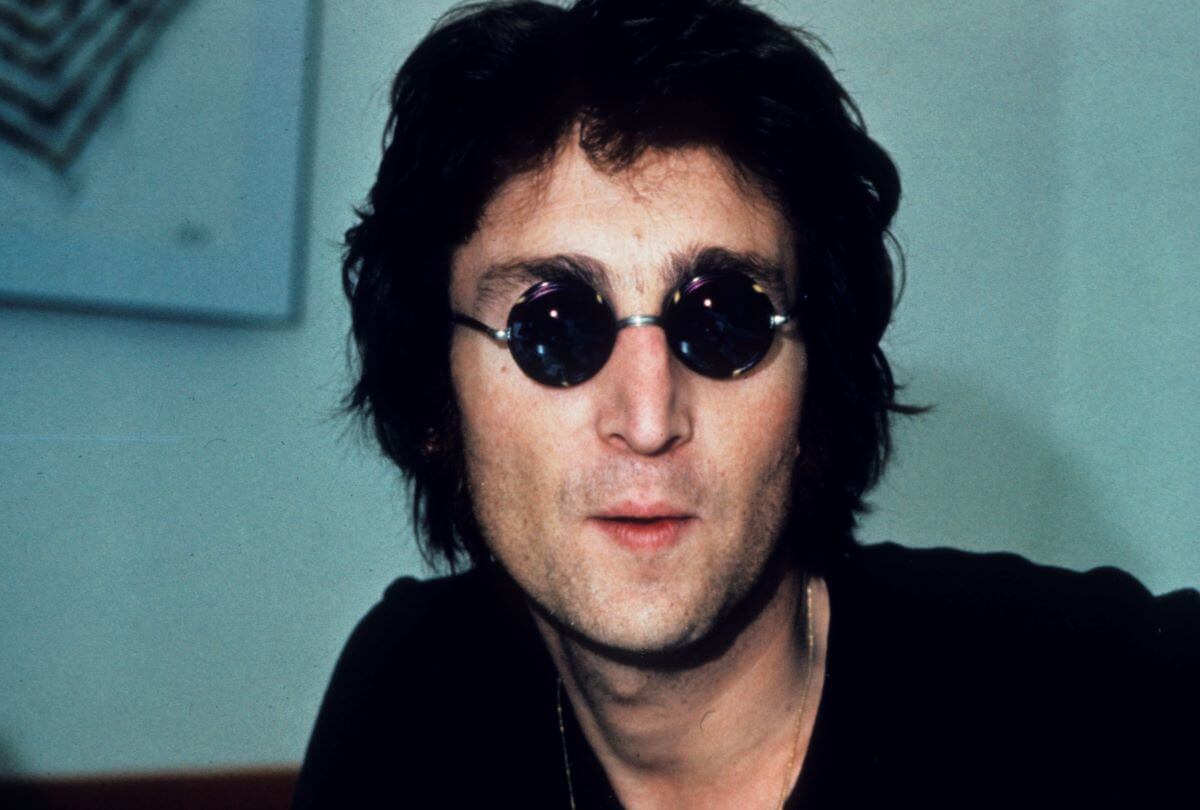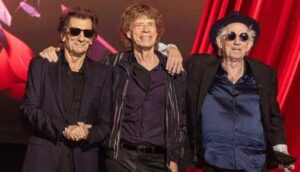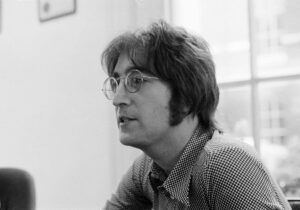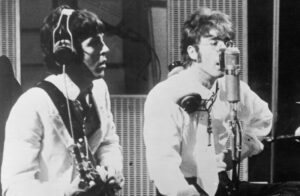On December 8th, 1980, TV and radio broadcasts around the world were interrupted by some devastating news. ABC sports commentator Howard Cosell, on hearing the news while at an NFL football game, confirmed that “an unspeakable tragedy” had occurred. John Lennon, “the most famous perhaps of all of The Beatles”, as Cosell put it, had been shot dead outside of his apartment building.
The person responsible was waiting patiently outside of the Dakota Building in New York, where Lennon lived, with the novel The Catcher in the Rye in his hand, when the police arrived. He was apprehended unarmed and without resistance.
Lennon’s murderer was even photographed with him in the last ever picture taken of The Beatles’ lead singer and songwriter as he made his way out to a recording session. The image by photographer Paul Goresh shows Lennon signing a copy of his new LP Double Fantasy for his soon-to-be assassin. Lennon then looked into the eyes of his killer and asked him cryptically, “Is that all?”
Late the same evening, Lennon and Yoko Ono returned to the Dakota, where the killer fired two shots into his back as he walked through the entrance gate.
At no point did the culprit deny his actions during eight hours of questioning by the NYPD at a police station in Manhattan. He was then remanded in custody for psychiatric evaluation.
The man’s name was Mark David Chapman, a 25-year-old from Honolulu, Hawaii, who had flown all the way to New York with the express intention of killing Lennon. He had already told his wife that this intention had become his obsession after previous visits to New York in successive months. Tragically, neither she nor any mental health professional stepped in to prevent Chapman from fulfilling his aim.
Why did Mark Chapman want to kill Lennon?
During Chapman’s trial for Lennon’s murder, five out of six expert witnesses diagnosed him with paranoid schizophrenia (the sixth diagnosed him with manic-depressive psychosis). Chapman later recounted in a 1992 interview with Larry King how moments before the murder, he heard a voice in his head telling him: “Do it. Do it. Do it.” That account seems to corroborate the expert diagnoses of his illness.
On this basis, his legal team pushed for him to plead insanity, but he insisted on pleading guilty, having “received the word from God” that he should. While being sentenced, when asked why he committed the murder, he simply read out a passage from The Catcher in the Rye, the novel he had on his person the night of the killing.
Chapman bought that copy of the book the morning of the murder, as he would relate to King years later. He “signed it ‘To Holden Caulfield [the novel’s protagonist], from Holden Caulfield.’ And wrote underneath that: ‘This is my statement’.”
These allusions to the book in relation to his act of murder seemed to reflect a warped idea that somehow he was saving the young children of the day from Lennon’s atheism. Holden Caulfield saw his own salvation in saving his younger sister, as represented in the image of “the catcher in the rye”.
Chapman went from being an avid Beatles fan to a born-again Christian. He was angered by Lennon’s 1966 statement that his group was “more popular than Jesus”, as well as his song ‘God’, which describes a monotheistic supreme being as “a concept by which we measure our pain”.
Regardless of any arguments over religion, this description may have, in a twist of tragic irony, proven quite fitting for Chapman’s own use of God to self-medicate and justify murder in cold blood.
Beyond religious and literary motivations, Chapman apparently had a hit list of other celebrities he planned to kill, the jury of his trial was told. Fame may well have been, at the very least, a secondary motive for this mentally unwell young man.
Whatever the specific motives Chapman may have felt at the time, John Lennon himself appears to have the most succinct explanation for his own death. When asked about The Beatles’ future in a 1965 interview, Lennon eerily predicted that he’d “be popped off by some loony.” Sadly, he was right.



